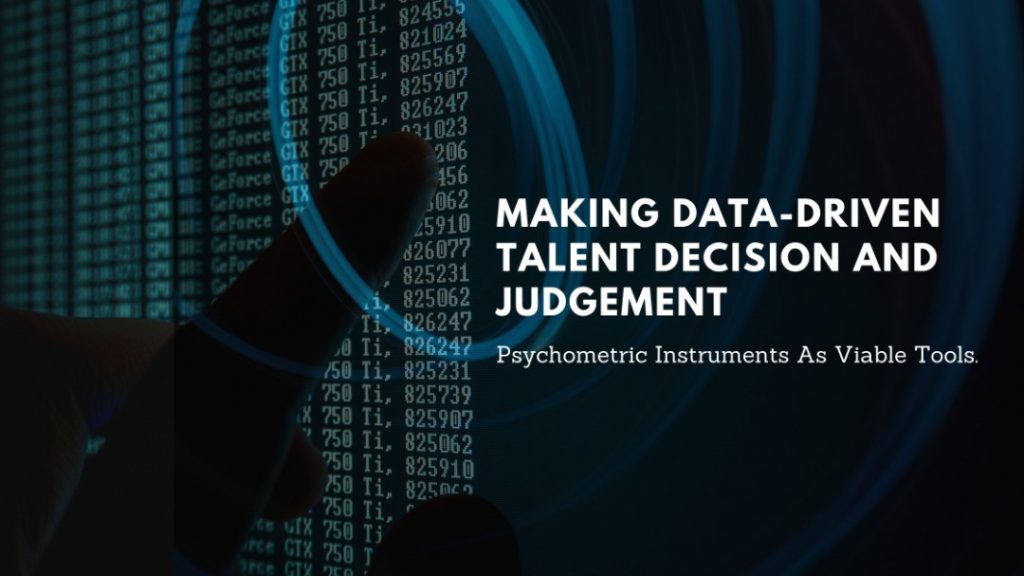
Effective job performance is usually dependent on a number of factors including, the extent to which an individual’s likely behaviour is aligned with the key drivers of success in a particular role. The key challenge that every talent master or custodian is faced with following the events of Covid-19 is the ability to make effective talent decision or judgement across the talent management touchpoints; talent acquisition, assessment, segmentation, development, deployment, reward and even exit.
Consequently, the application of psychometric tools to assess talent provides an opportunity to have both reliable and valid data regarding the individual being considered. In talent management, it often makes sense to deploy evidence-based or data-driven solutions that help in linking empirical talent data to decision making. For example, psychometric instruments can be used for screening to identify suitable candidates from a pool under consideration. This serves as an effective talent selection process.
More so, psychometric assessments can provide useful data points for the purposes of developing the needed capabilities of an identified pool of talents. The valuable data generated from this process can be translated into meaningful talent information that informs the decisions being made regarding an individual talent or a pool of talents.
Making talent decisions and improving talent performance can be grossly enhanced with the use of the right battery of assessments. Psychometric assessments provide useful insights into the cognitive ability, personality, individual motives and the kind of values that an individual is either bringing to the organisation or trying to adapt to within the organisation. These data further help us to connect the attributes of individuals to the expectations of the job in terms of the expected competencies, and the behaviours required for success in a particular role as it relates to the job complexities. Matching the context of each job, role or assignment to the capability of the individual being considered becomes easier based on the outcomes generated using the right mix of assessments. With the event of COVID-19 pandemic which has prompted new approaches and complexities to work and work environment, psychometric instruments have become important talent assessment and development tools in ensuring that the right talents are selected, developed and placed in roles within the organisation.
Let me conclude by stating that a whole range of psychometric instruments exist today. However, the selection of the appropriate battery of assessments should be based on professional guidance to avoid using the right tool to assess the wrong pool of talents or using the wrong tool to assess the right pool or, even using the wrong talent assessment tool to assess the wrong pool. In all of these scenarios, both the outcomes of the assessments and the decisions taken would be adversely impacted
For professional guidance and support, contact Adebayo via asa@talentsuccession.com or call: +2348032009413
Compiled by:
Adebayo Akinloye, Assc.CIPD, ACIPM
Author: Talent Management Agenda in a Post COVID-19 World
Director, Global Talent Solutions
ASA Talent & Succession Management Solutions

